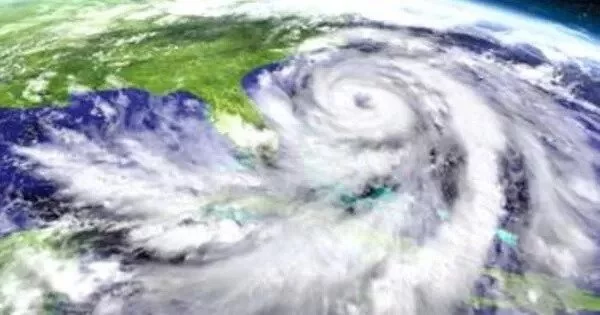According to a first-of-its-kind study led by University of California, Irvine researchers, repeated exposure to hurricanes, whether direct, indirect, or media-based, is associated with adverse psychological symptoms and may be associated with increased mental health problems.
The findings, which were published in JAMA Network Open, are critical for understanding the psychological effects of recurring natural disasters, especially in light of the looming threat of climate change. Rather than individuals becoming accustomed to repeated disaster exposure, the findings show that responses to subsequent hurricanes become more negative over time.
“We show that people are unlikely to become accustomed to climate-related natural disasters that will become more frequent and severe in the coming years. Our findings point to a potential mental health crisis among those who directly experienced the storm or knew someone who did, as well as those who spent several hours watching hurricane-related media” Dana Rose Garfin, UCI assistant adjunct professor of nursing and public health and the report’s first author, agreed.
We show that people are unlikely to become accustomed to climate-related natural disasters that will become more frequent and severe in the coming years. Our findings point to a potential mental health crisis among those who directly experienced the storm or knew someone who did, as well as those who spent several hours watching hurricane-related media.
Dana Rose Garfin
The first-of-its-kind longitudinal study was conducted by Garfin and her colleagues, Roxane Cohen Silver, Distinguished Professor of psychological science, medicine and health; E. Alison Holman, professor of nursing; both from UCI and principal investigators of the research; Rebecca Thompson, Ph.D., UCI postdoctoral scholar in psychological science; and Gabrielle Wong-Parodi, Ph.D., assistant earth system science professor, and center fellow at the Woods Institute for the Environment, Stanford University.
The team assessed Florida residents in the hours before Hurricane Irma made landfall and examined those same individuals again following Hurricanes Irma and Michael to detect any mental health changes that might have occurred over time. Both were Category 5 storms that hit in succession — Hurricane Irma in September 2017 and Hurricane Michael in October 2018.

The researchers discovered that repeated exposure to the threat of catastrophic hurricanes was associated with post-traumatic stress disorder, depression, anxiety, and ongoing fear and worry. As a result, these psychological symptoms were linked to greater social and occupational impairment, such as difficulty interacting with others and performing work tasks and other daily activities.
“Some distress is normal in the aftermath of traumatic and extremely stressful events,” Garfin explained. “Most people will recover and become more resilient over time. However, as climate-related disasters such as hurricanes and wildfires become more common, this natural healing process may be hampered by repeated threat exposure. Furthermore, we followed people over two hurricane seasons, and our findings show that as people experience multiple occurrences over time, psychological symptoms accumulate and intensify, potentially indicating a mental health crisis.”
Anxiety can be an adaptive response to disasters and may motivate people to take protective action in preparation for the next event, team members said, and recommend that future research explore how to leverage that reaction in ways that do not increase mental health ailments. They also believe the strong link between media engagement and distress suggests that social channels and mainstream outlets can play a critical role in effectively communicating the risk of increased distress with repeated threat exposure.
A hurricane or other violent storm is a traumatic event. It is normal to feel anxious or depressed. The American Psychiatric Association (APA) advises staying up to date on new information and developments while avoiding overexposure to news rebroadcasts of the events and ensuring that the sources of this information are credible. The APA also suggests learning about local resources that can help those affected by the disaster and sharing this information with others.
It’s also beneficial to talk to friends, family, or coworkers who are likely experiencing similar anxiety and depression symptoms. If you have children, encourage them to express their concerns and assure them that the situation will improve. However, if your emotions are interfering with your ability to carry out your responsibilities, you should seek professional help. Treatment can help you recover from trauma caused by a hurricane or another experience.
















